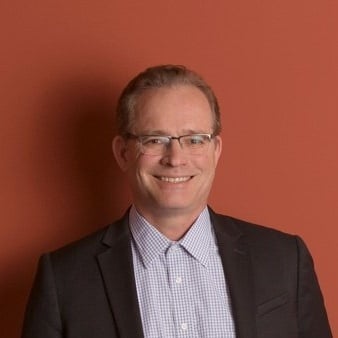
Every parent can see that birth to age 5 are a whirlwind of learning. Many parents strive to include informal learning activities like the ABC’s. But you may be surprised to learn that no aspect of early education is more important to a child’s academic future than mathematics. Research from Greg Duncan at the University of California, Irvine shows that early math skills in 5-year-olds are the single greatest predictor of later achievement.So at a recent early childhood education conference in Chicago, I was excited to see policy leaders, researchers, corporations and foundations supporting our youngest learners, including in developing their math skills. Unfortunately, the only presentation focused on digital content for pre-K students was my own.
The vast majority of digital content intended for children is of low educational quality. Having a 4-year-old gesture her way through random "edutainment" apps is hardly the transformation of learning we need. And yet, digital is ideal for rapid scale-up, and every year we “wait” for a non-digital solution to reach scale, we miss out on 4 million more 4-year-olds in the U.S.
At the K-5 level, there is now a digital, neuroscience-based math program from MIND Research Institute that has shown potential for radical transformation of learning. ST Math® has successfully doubled and tripled annual growth in math proficiency for grade 2-5 students on state tests. The program presents math concepts as a full in-school curriculum of visual, language-free puzzles of virtual onscreen manipulatives.
If you have a math program that teaches math visually, without requiring language proficiency or even reading skills, then what better age to apply it to than pre-readers – especially ones who don’t necessarily speak any English! Imagine a teacher working with a 4-year-old digital native who is using a tablet to get literally “hands-on” with number sense. (Play ST Math for yourself here.) MIND Research Institute is currently piloting ST Math in select teacher-led, site-based pre-k classrooms. Thanks to a grant from the W.M. Keck Foundation announced this week, 1,400 more low-income children will have the opportunity to learn with ST Math.
If we want to level the education playing field even before traditional schooling starts, and lay a solid foundation across the nation for lifelong success in STEM (science, technology, engineering and math) fields, we need to start young and be bold. Technology-based deeper-learning programs like ST Math will enable us to do just that.
A version of this blog was published in the September issue of District Administration.
MIND Research Institute has worked with early childhood education professionals, brain researchers and mathematicians to develop ST Math: Transitional Kindergarten, a comprehensive math curriculum that meets the developmental and learning needs of the youngest students.

Andrew R. Coulson, Chief Data Science Officer at MIND Research Institute, chairs MIND Education's Science Research Advisory Board and drives and manages all research at MIND enterprises. This includes all student outcomes evaluations, usage evaluations, research datasets, and research partnering with grants-makers, NGOs, and universities. With a background in high-tech manufacturing engineering, he brings expertise in process engineering, product reliability, quality assurance, and technology transfer to edtech. Coulson holds a bachelor's and master's degree in physics from UCLA.
Comment